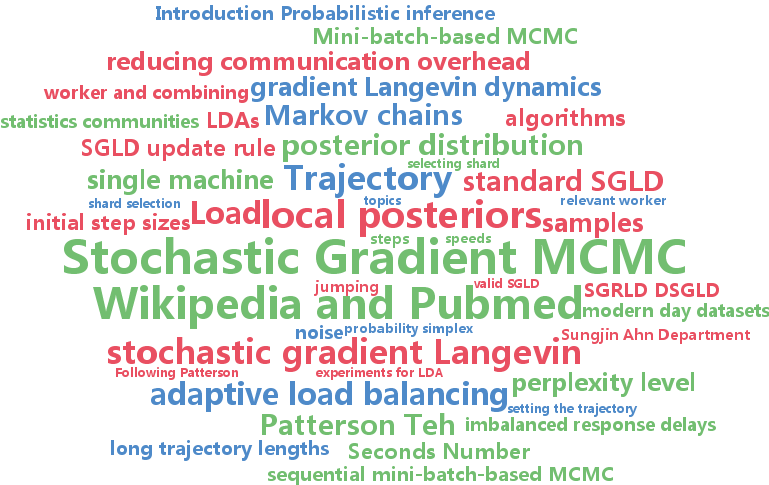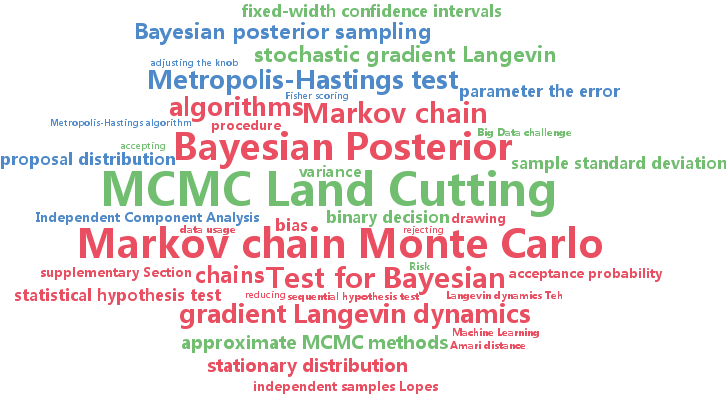gradient langevin dynamics
-
Sungjin Ahn and Babak Shahbaba and Max Welling
Distributed Stochastic Gradient MCMC (pdf)
Probabilistic inference on a big data scale is becoming increasingly relevant to both the machine learning and statistics communities. Here we introduce the first fully distributed MCMC algorithm based on stochastic gradients. We argue that stochastic gradient MCMC algorithms are particularly suited for distributed inference because individual chains can draw minibatches from their local pool of data for a flexible amount of time before jumping to or syncing with other chains. This greatly reduces communication overhead and allows adaptive load balancing. Our experiments for LDA on Wikipedia and Pubmed show that relative to the state of the art in distributed MCMC we reduce compute time from 27 hours to half an hour in order to reach the same perplexity level.
-
Issei Sato and Hiroshi Nakagawa
Approximation Analysis of Stochastic Gradient Langevin Dynamics by using Fokker-Planck Equation and Ito Process (pdf)
The stochastic gradient Langevin dynamics (SGLD) algorithm is appealing for large scale Bayesian learning. The SGLD algorithm seamlessly transit stochastic optimization and Bayesian posterior sampling. However, solid theories, such as convergence proof, have not been developed. We theoretically analyze the SGLD algorithm with constant stepsize in two ways. First, we show by using the Fokker-Planck equation that the probability distribution of random variables generated by the SGLD algorithm converges to the Bayesian posterior. Second, we analyze the convergence of the SGLD algorithm by using the Ito process, which reveals that the SGLD algorithm does not strongly but weakly converges. This result indicates that the SGLD algorithm can be an approximation method for posterior averaging.
-
Anoop Korattikara and Yutian Chen and Max Welling
Austerity in MCMC Land: Cutting the Metropolis-Hastings Budget (pdf)
Can we make Bayesian posterior MCMC sampling more efficient when faced with very large datasets? We argue that computing the likelihood for N datapoints in the Metropolis-Hastings (MH) test to reach a single binary decision is computationally inefficient. We introduce an approximate MH rule based on a sequential hypothesis test that allows us to accept or reject samples with high confidence using only a fraction of the data required for the exact MH rule. While this method introduces an asymptotic bias, we show that this bias can be controlled and is more than offset by a decrease in variance due to our ability to draw more samples per unit of time.


